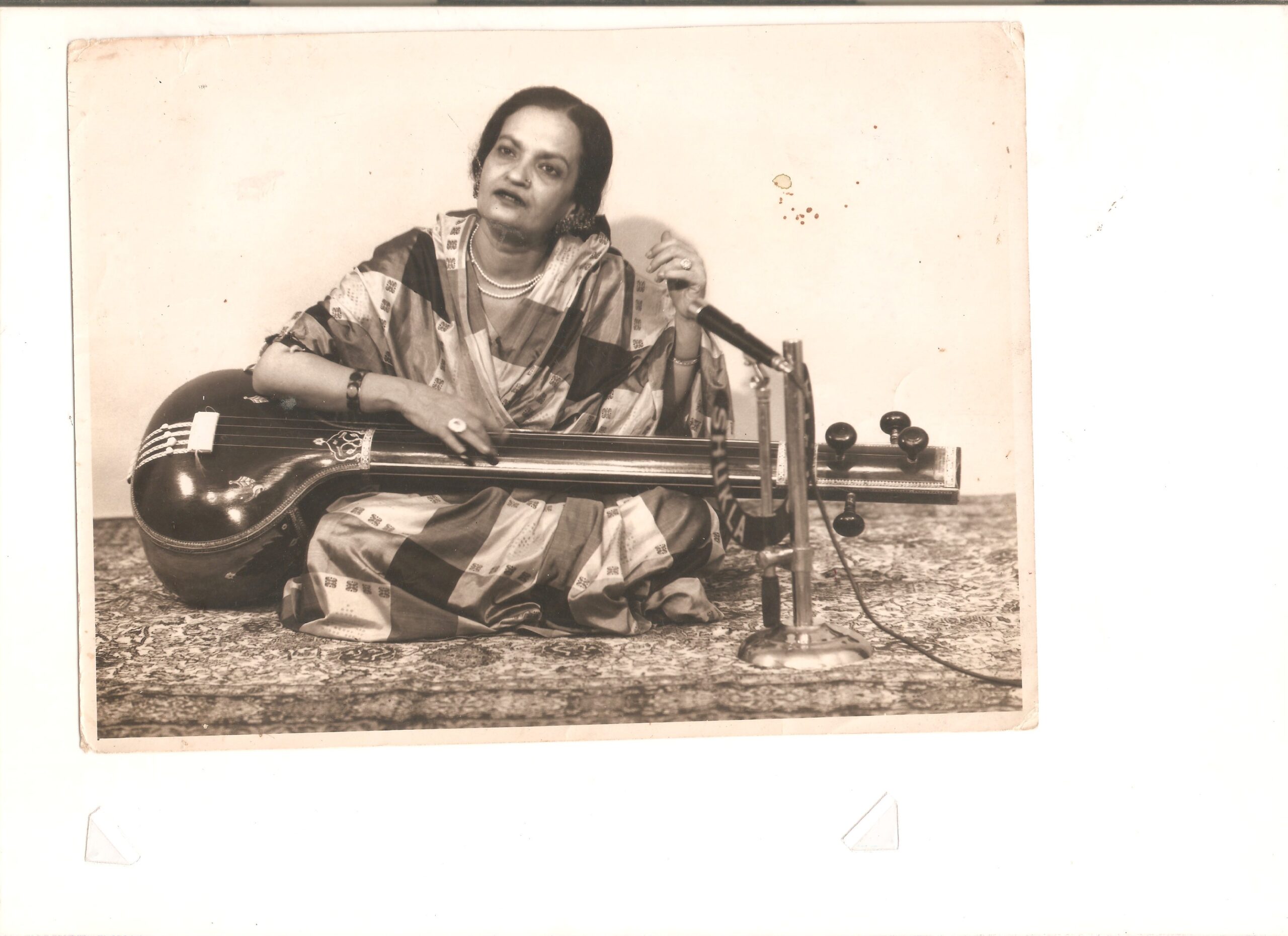ae mohabbat tere anjaam pe rona aaya
mere humnafas, mere humnawa
mujhe dost banke daga na de
In this day and age we know this ghazal not by the name of the shayar who wrote it but by the adakaara who breathed life into it by giving the ghazal her voice. Akhtari Bai had a nuance of immortalising words and the pain that lived through them by laying her fan (फ़न) to the utmost into ghazals. Akhtari Bai Faizabadi was born on 7th October 1914 with a twin sister named Zohra to Mushtari and her lawyer husband. Her life became tragic and despondent from very early on after her father abandoned her and her mother after the twins were born. Akhtar was barely seven when she was captivated by the music of Chandra Bai, an artist attached to a touring theatre group. However, at her uncle’s insistence she was sent to train under Ustad Imdad Khan, the great sarangi exponent from Patna, and later under Ata Mohammed Khan of Patiala. Her mother took her to Calcutta thereafter. There she was trained in classical music by the likes of Mohammad Khan, Abdul Waheed Khan of Lahore who were classical partisans, and finally she became the disciple of Ustad Jhande Khan.

After her first public performance at the age of fifteen, for which she gained praise from Sarojini Naidu, she began performing at more shows and taking her discipline to her career seriously. She cut her first disc at Megaphone Record Company and subsequently began to sing thumris and dadras along with ghazals. Being a beautiful woman being blessed with an angelic voice, acting opportunities followed naturally after her rise to fame. She acted in a few films in the 1930s with the rise of talkies in India and sung her own songs/ghazals in the respective. One of her more prominent roles were in films like “King for a Day” (alias Ek Din Ka Badshah) and Nal Damayanti in 1933. Soon the glamour and fame began boring her and she decided to devote herself to her passion for classical music. Her whole gamut consisted of primarily classical notes with a variety of ragas ranging from simple to complex. In time with all the success surrounding her career she became known as Malika-e-Ghazal.
Akhtari was a force of nature, a woman with a purpose with a skillset to back it up. She was a pioneer in more ways than man can imagine, from being one of the first women to abandon singing ghazals only in private concerts or mehfils to challenging stereotypes of court singers of the day, she never ceased to deliver. Begum returned to Lucknow in the 1940s but was then approached by Mehboob Khan to act in his film Roti, after finishing that contract she then came back to Lucknow from Bombay in 1943. In the year 1945 she got married to a Lucknow-based barrister named Ishtaque Ahmed Abbasi, and became known as Begum Akhtar. Her husband forbade her to sing after their marriage and this in turn tortured the artist inside her, she began falling sick and fell into a major depressive episode. After a couple of years of being emotionally leaden with this burden she resumed singing in 1948 as people realised that it was her only remedy. For her comeback she sang 3 ghazals and a dadra at AIR, Lucknow and wept tears of joy and relief as she was reunited with the core of her being. She never stopped performing after that and was a regular at the AIR, in fact she was the only artist that had the permission to smoke on the premises as she was habitual.

Begum Akhtar was a favourite of many she had fans who turned into close friends some of which include Saleem Kidwai and Agha Shahid Ali. Her harsh life had made her understand the importance of being soft to her beloved ones and was fondly called ammi by those who were younger. During her last concert in Balaramapram 1974, she raised the pitch of her voice as she felt that her singing had not been as good as she had wanted it to be and felt unwell. The stress she put herself under resulted in her falling ill and was rushed to the hospital.
She died on 30 October 1974 in the arms of Nilam Gamadia, her friend, who invited her to Ahmedabad, which became her final performance. Her resting place is a mango orchard in her own home next to her ammi Mushtari Sahiba, in Thakurganj, Lucknow which was later renovated by her well wishers in 2012 with a pietra dura style marble inlay. The true essence of Begum Aktar reflects in how she is remembered by those who loved her deeply, from breaking patriarchal stereotypes about the tawaif community to giving light classical music a different platform altogether she is and was a force to be reckoned with.
– Priyam Bajpai

